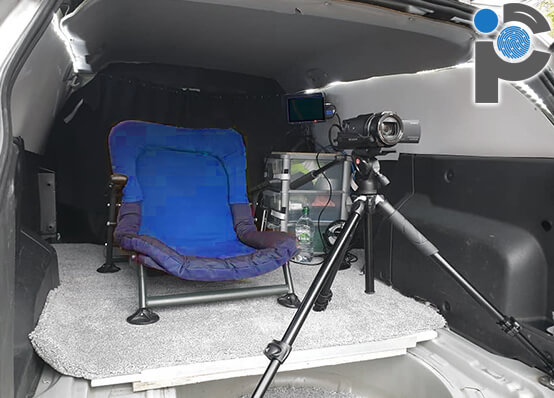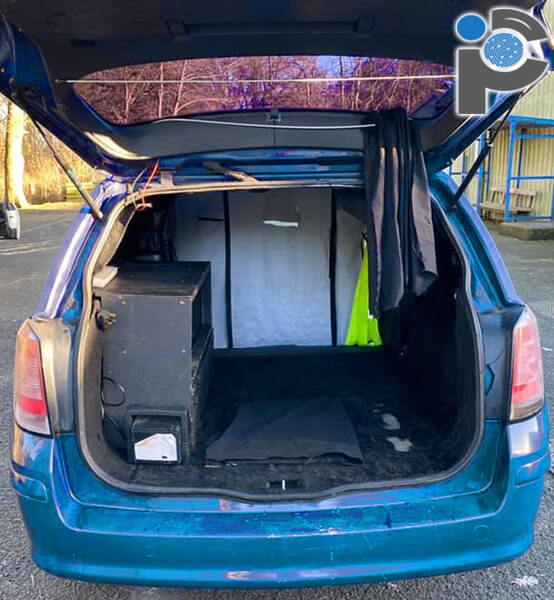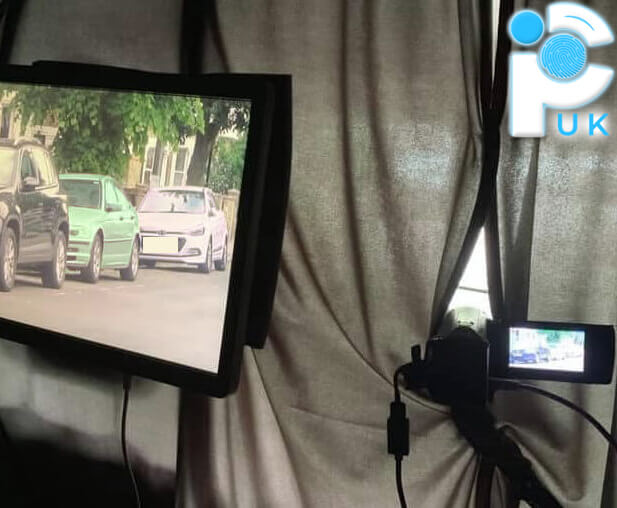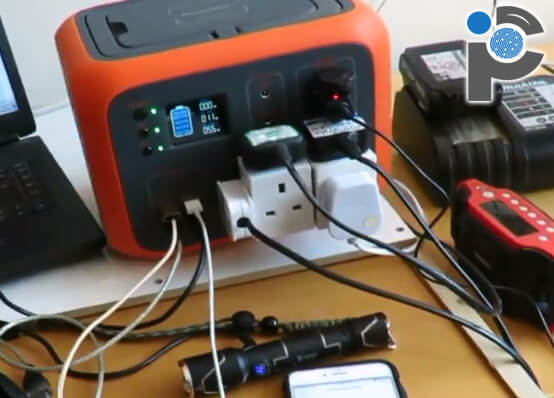What Type of Cars do Private Investigators Drive?
February 9, 2021 - Reading time: 11 minutes
Updated on: July 23, 2025
This article has been written by PrivateInvestigators-UK, and relates to cars used by private investigators in the UK (England, Wales, Scotland and NI). If you are not based in the UK, then the answer to this question will of course depend on your local environment.
Private investigators should drive cars which are suited to the type of environment they are working in. A late model or high-end vehicle will match its environment best in an affluent area, for example. Whereas in rural areas a muddy land rover might be less conspicuous, in urban areas surveillance agents tend to choose vehicles which are comfortable for working long hours, but that are also as discreet as possible.
Of course, the answer to this question also depends on whether the surveillance will be static (watching a property and photographing anyone coming and going), or mobile surveillance where the agent is seeking to follow the subject and find out where they are going.
What types of vehicle are used by private investigators?

Small car-derived vans are popular in the UK which make them a good choice as surveillance vehicles – without having any seats in the rear of the vehicle there is space for an agent to setup camera equipment and go about his or her work. Transit vans of all sizes are also very common on British roads and are often used by private investigators; they can provide a lot of space to setup equipment and make a comfortable space for a detective to work. Estate cars are also popular with surveillance agents, especially if the seats can be removed or folded flat so that the rear of the vehicle can accommodate a camera and tripod setup.
However, private detectives can use almost any type of vehicle that is properly setup for surveillance. SUVs or crossovers are also popular, we have also seen many examples where small and compact cars were used for surveillance. Cars which have easily removed seats and tinted windows can be used effectively in many cases.
We cannot condemn any specific type of surveillance vehicle, as we have seen countless ingenious setups and uses of virtually every type of vehicle for surveillance that you can imagine… All it takes is some thought and creativity as to how the specific vehicle can be best used in each individual case.

Vehicle signage used by private investigators
In the case that a detective is using a car-derived van or a transit van for surveillance, they may choose to add fake business signage to their vehicle to make it seem less conspicuous. If you choose to take this path then we would recommend purchasing magnetic signs, so that your signage can easily be removed or changed depending on the location of the assignment.
The key with using dummy signage is to match the environment where the vehicle is being used. For example, there is no reason for a TV aerial company to be parked at the bottom of a dirt track or in a field for days on end… Dummy signage can actually make your vehicle more conspicuous if done badly.
The key is to purchase professional signs which match your type of vehicle (make/model/year), and to match your environment. For example, if construction is taking place within a certain area, then it would not seem suspicious for a builder’s van to be parked in the area for many days or even weeks.
If a van is being used by a construction company, for example, then you would expect to find dirty high-vis jackets, hard hats, and muddy work boots in the cab of the truck.
Keeping your surveillance vehicle low-key

Whether you are using a car, van, or truck, it would be wise to choose a common, nondistinctive vehicle. Cars which are silver or white in colour are favoured by many detectives. If you have a bright pink car or a vehicle wrapped in metallic gold then you really ought to consider purchasing a different vehicle, or getting the one that you have repainted.
Customising your vehicle with chrome accessories, a body kit, loud exhaust, private number plate, or indeed anything which will make it stand out would be a definite no-no for cars which are being used during surveillance cases. The goal is to make your vehicle as benign and ordinary as possible – modifying a vehicle in ways which make it stand out is not a good idea.
Renting vehicles for private investigation
In the event that a case requires the use of many different vehicles, it is not uncommon for private investigators to rent vehicles, particularly if they are working for a small firm and do not have the resources to maintain a fleet of different vehicles which can be used for surveillance. Whether the cost of renting a vehicle would be included as part of the investigation or billed separately would be a matter for the detective agency; though suffice it to say that any additional charges will need to be explained and made clear to the clients in each case.
Using window tint for private investigations
Vehicles which are being used by private investigators to conduct surveillance are very often fitted with dark window tint (usually 5% “limo tint”). Window film can be fitted professionally or at home with relative ease. UK law prevents dark window film from being applied to the front windscreen of a vehicle and the driver and passenger side windows. Rear windows in your car can be tinted to any level or even covered with curtains.
Particularly if a rented vehicle is being used for surveillance, then static cling window film can be used temporarily, which can be applied to the window and then removed and reused as necessary.
Window tint does have limitations and it’s important to understand them when using a vehicle for surveillance. If the amount of light outside your vehicle is greater than the amount of light inside, then the effect of the film will be reversed. A camera or laptop screen will be visible through dark window film at night, for example, and could easily blow your cover during surveillance. Blackout curtains would typically be used to help solve this problem at night.
Window film can be difficult to see out of at night, depending on the amount of ambient light in the area outside your vehicle. Ceramic window film, while costing slightly more, generally provides better night-time visibility and greater heat reflectivity than standard window films.
The essentials for any surveillance vehicle
Surveillance vehicles can be setup with very little effort; or with a huge amount of effort with external cameras placed around the vehicle and a battery system able to power them. At the very least surveillance vehicles should have a tripod for stabilising any camera equipment that is being used and any provisions the agent will need during the course of the assignment.
There is no single correct method when it comes to setting up a vehicle for use in surveillance during private investigations. How a vehicle is setup, and the tactics that are used, will typically vary depending on the circumstances in each case and the aims of our client.
Power inside your surveillance vehicle

Using a vehicle for surveillance will always consume some form of power, whether that is a simple DSLR or video camera, a computer, or a more elaborate setup with multiple different cameras. In summertime it is often necessary to keep cool by running fans. Solar panel and battery setups are popular for people that are using commercial vehicles (such as transit vans), on smaller vehicles however solar panels mounted on the roof may create unwanted attention.
Idling a diesel or petrol engine for any length of time during surveillance would be off-limits during the vast majority of investigations. Rechargeable battery packs can be used in some cases where solar is not viable; as technology continues to evolve, there are many battery packs on the market which are capable of powering equipment for the length of an assignment.
Many electric and hybrid electric vehicles are able to supply power to your electronics without needing to run a noisy petrol or diesel motor. Electric vehicles can also allow you to run your air conditioner, which would make a huge difference to comfort levels on particularly cold or hot days. We are seeing more investigators choose electric or hybrid vehicles, partially for their usefulness to power camera gear and other electronics.
Dash cams for private investigators
Dash cams are becoming more essential for motorists in general, as well as private investigators. Their main benefit is the ability for video to be captured hands-free while the agent drives their vehicle; dash cams are generally not relied on to capture evidence, though they can come in handy from time to time.
We would recommend purchasing a good quality dash cam, which preferably records in 4K or at least 1080p. While some people power their dash cams using their car cigarette lighters, they can also be professionally wired into the vehicle’s fuse box, which can allow the dash cam to record 24 hours per day, even when the vehicle ignition is switched off.
We also highly recommend installing a rear facing camera externally on your vehicle so that video is captured from the rear. Camera setups with 4+ cameras are becoming more common as technology improves and becomes cheaper. If your vehicle is being used for surveillance then choosing a dash cam which is discreet and cannot be easily noticed from outside the vehicle would be a good idea.
As with all equipment and gadgets, we believe that you get what you pay for with dash cams, and that spending money for a higher quality device is almost always a wise decision.
PrivateInvestigators-UK
If you enjoyed this blog post, then check out our other related articles:
You are reading the PrivateInvestigators-UK blog — home to the UK's leading detective agency. Learn more about us by visiting our homepage PrivateInvestigators-UK.com.